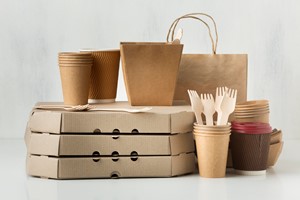In recent years, the global food industry has undergone a notable shift towards sustainability, catalyzed by mounting consumer awareness and environmental concerns. Central to this transformation is the revolution in food packaging, where stakeholders are increasingly prioritizing eco-friendly solutions that minimize environmental impact without compromising functionality or quality.
Traditional plastic packaging, long associated with environmental challenges, is being supplanted by innovative materials offering biodegradability and renewability. Materials such as PLA, PHA, and cellulose-based films are gaining traction for their ability to decompose naturally, thus reducing landfill waste and carbon footprint. Derived from renewable resources like corn, sugarcane, and cellulose, these materials bolster their sustainability credentials, offering a promising alternative to conventional plastics.
Recycling and composting are pivotal components of the circular economy, driving sustainable food packaging practices. Manufacturers are investing in materials easily recycled or composted, from paper-based cartons to compostable bioplastics, facilitating convenient disposal without environmental harm. Concurrently, advancements in recycling technologies enhance material recovery efficiency, promoting the transition towards a closed-loop system.
An innovative leap in sustainable packaging is the emergence of edible packaging. Edible films and coatings made from proteins, lipids, and polysaccharides provide protection and shelf life extension while being entirely consumable, reducing packaging waste and enhancing consumer experience. Similarly, edible alternatives to plastic straws and plant-based utensils offer sustainable options for single-use items, further mitigating environmental repercussions.
Beyond single-use packaging, reusable systems offer a viable solution to waste reduction. Reusable containers, crates, and pallets designed for multiple trips through the supply chain significantly diminish packaging waste and associated costs. Collaborative initiatives between stakeholders foster a culture of sustainability and responsibility, driving the adoption of reusable packaging models.
Smart packaging technologies incorporating sensors and indicators further enhance sustainability by reducing food waste. Monitoring factors like temperature, humidity, and freshness in real-time ensures optimal storage conditions, prolonging product shelf life and minimizing the need for excessive packaging materials.
As sustainability becomes a cornerstone principle in the food industry, the evolution of food packaging assumes a pivotal role in shaping consumption patterns. Through the embrace of innovative materials, technologies, and business models, stakeholders across the supply chain collectively reduce environmental impact, paving the way for a greener, healthier planet for generations to come.
In conclusion, the journey towards truly sustainable food packaging practices is well underway, fueled by ongoing research and collaborative efforts. Embracing this evolution is imperative for a more sustainable future, where environmentally responsible practices are integral to every aspect of the food industry.
totalfood.com














